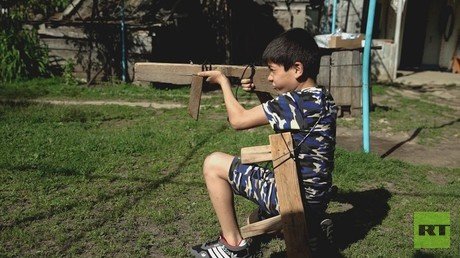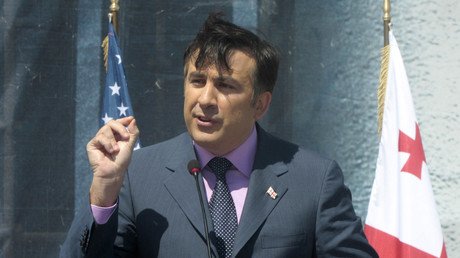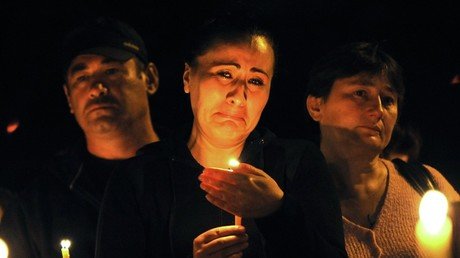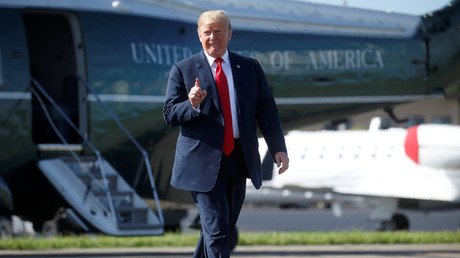10 years since Georgia attacked South Ossetia and Russia – not the other way around
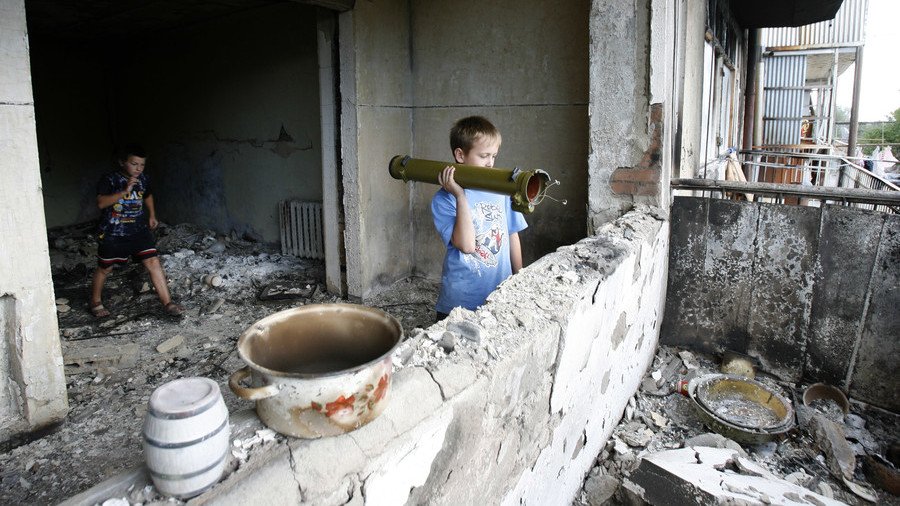
Wednesday marks exactly a decade since an ambitious Georgian leader shook world politics and ushered in a new era of antagonism between Russia and the West.
Ten years ago Western audiences learned about breaking news. Russia was doing it again – attacking its weaker neighbor Georgia with tanks and warplanes. Georgia’s President Mikhail Saakashvili was giving exclusive interviews right and left, explaining how his country was being attacked because it wants freedom and how the battle was for values, nothing less. Anchors reminded viewers that Georgia provided troops to missions in Iraq and Afghanistan, and wanted to be part of NATO.
On the same day Russian audiences learned that Saakashvili went on his latest military adventures, sending tanks and heavy artillery to shell the rebellious city of Tskhinval. Russian peacekeepers stationed there had been killed. President Dmitry Medvedev, visiting the Olympic Games in Beijing, ordered a military response to enforce peace in South Ossetia.
The schism of realities was palpable to those who got their news from sources on both sides. The current expression “fake news” would have been flying around, for sure.
The 10th anniversary of the dramatic five-day war in Georgia comes with a new string of reports. “Ethnic Georgians and Ossetians had lived together peacefully throughout the 20th century,” says NBC News, citing a Georgian expert.
“Saakashvili’s miscalculation gave Putin the opening he needed to seize control of Abkhazia and South Ossetia, leaving both territories financially and militarily reliant on Russia,” says The Washington Diplomat.
History of ethnic divisions
When Georgia regained its independence from a crumbling Soviet Union, it came with the baggage of bitter ethnic rivalries. Georgian nationalists, who were the driving force behind the secession, made little effort to defuse tensions, declaring that their independent state will be for Georgians first and foremost.
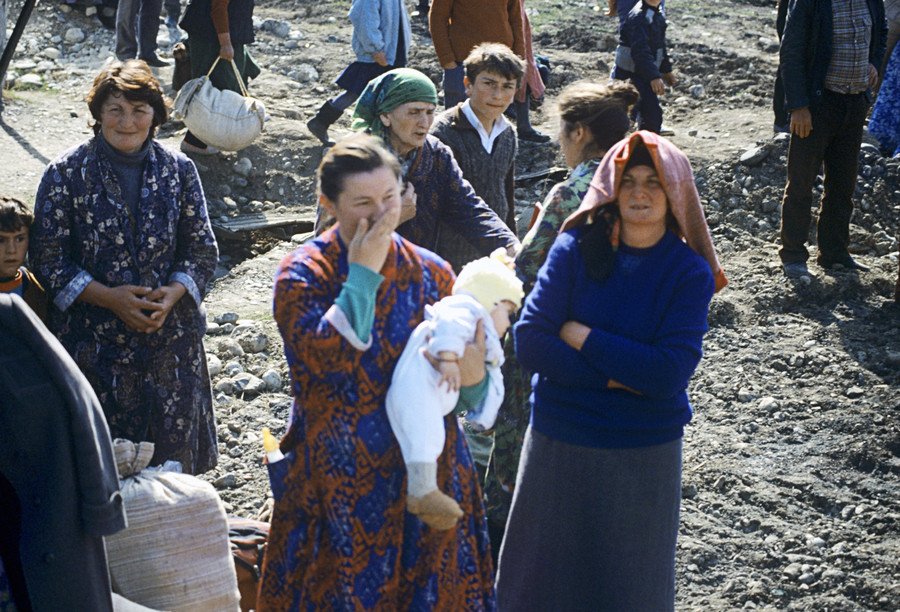
Two parts of Georgia did not take this ‘promise’ well. One was Abkhazia, an area in the northwest stretching along the Black Sea and bordering Russia’s Krasnodar region. By the 1990s, ethnic Abkhazians and Georgians were roughly equal in numbers there, and Abkhazians feared forced assimilation under the new government. The second was South Ossetia, a mostly mountainous region in the north, connected with Russia’s Ossetia by a single road under the Caucasus Mountains’ main ridge.
Both Abkhazia and South Ossetia had bad experiences with an independent Georgia in the early 20th century, when the collapse of the Russian empire festered in all kinds of separatism and nationalism at its outskirts. Both were made part of Soviet Georgia on provision of significant autonomy. Both were denied their wish to leave Georgia and remain part of Soviet Union in 1991, as Georgian President Zviad Gamsakhurdia rose to power.
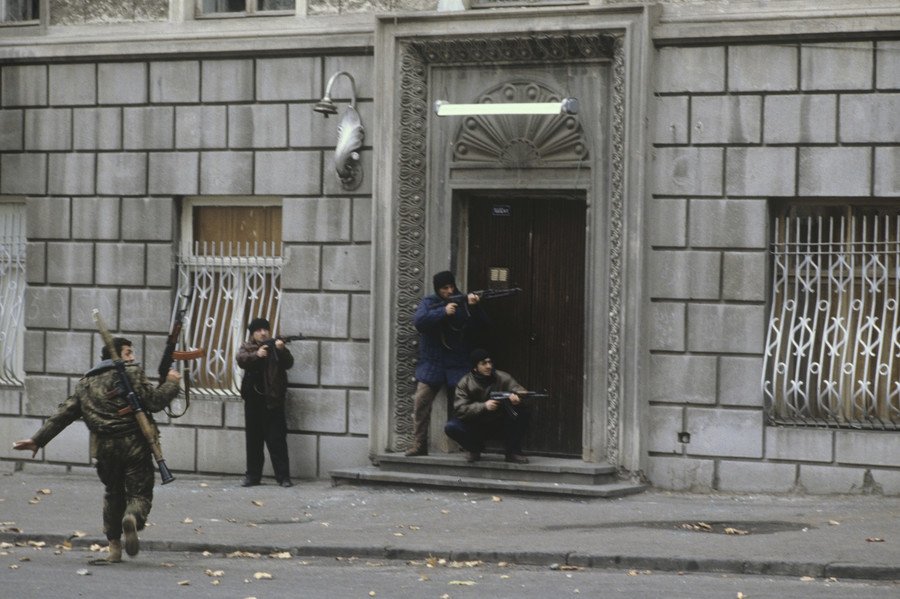
Gamsakhurdia’s brief presidency can hardly be called successful. His policies and rhetoric alienated ethnic minorities, triggered an armed uprising in South Ossetia and eventually led to a two-year civil war. The latter escalated tensions in Abkhazia, as the president’s opponents sent troops to the region as part of their attempt to encroach on Gamsakhurdia’s government in exile. He ultimately died under murky circumstances, but his supporters continued to be a thorn in the Georgian government’s side for years.
The armed conflicts in Abkhazia and South Ossetia saw hundreds killed, tens of thousands displaced and the land devastated economically. In each area, internationally-approved ceasefire regimes were eventually established, with Russian peacekeepers serving as guarantors of peace.
So, claiming there was mostly ethnic peace in Georgia is misleading at best.
Beacon of liberty
Saakashvili rose to the top level of Georgian politics in 2003, leading a public uprising against his former patron, President Eduard Shevardnadze. Unlike his predecessor, the former foreign minister of the Soviet Union, Saakashvili took a sharply antagonistic stance towards Russia. He wanted Georgia to be part of NATO, the military bloc that Russia perceives as an existential threat. And he didn’t care about Russia’s opinion on the issue.
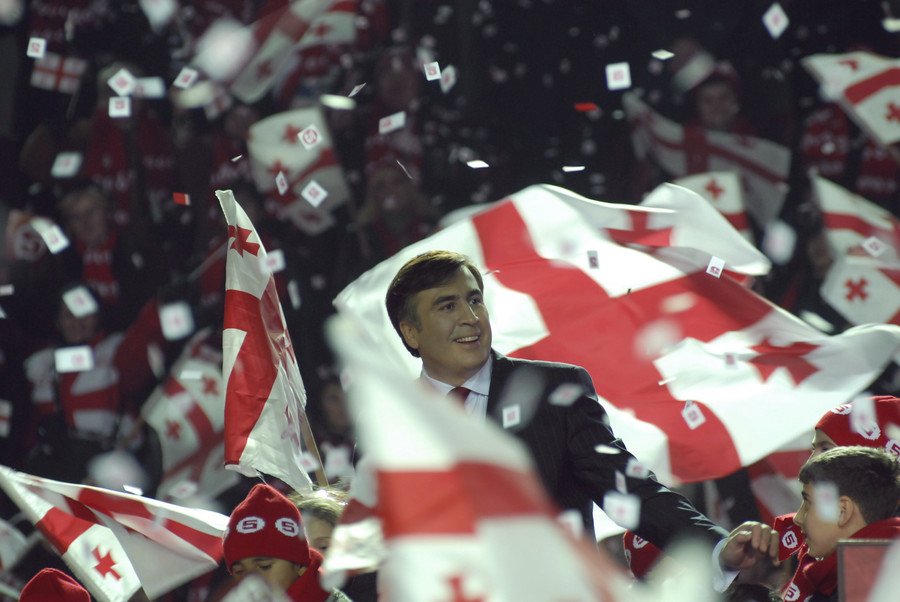
Georgia under Saakashvili became a showcase for what a Western-educated leader can achieve in a post-Soviet nation. His anti-corruption reforms, which managed to eradicate low-level graft, and massive infrastructure investments were given a positive spin by the media. His troops were offered training and equipment by allies and an honorary place to serve alongside NATO troops in Afghanistan and Iraq. George W. Bush called Georgia a beacon of liberty during his visit to Tbilisi.
The beacon’s darker aspects were not given much attention. The brutal suppression of mass protests in 2007 – which Saakashvili called an attempted coup sponsored by Russia– were barely accorded a second glance by the Western media. The harsh penal system was deemed by foreign sponsors as a necessity, to purge endemic corruption and organized crime, even as rights groups reported torture was common in Georgian prisons. And, of course, Georgian militarism was not considered as something bad.
Georgia under Saakashvili became quite militaristic. He increased defense spending from below one percent of GDP to eight percent of GDP and didn’t hesitate to deploy troops. In 2006, Georgian law enforcement was sent to the Kodori Gorge, an area in eastern Abkhazia, which remained under control of local Georgian militias since the war in the 1990s, and over which the central government had little control. The operation was successful for Saakashvili, but unnerved the Abkhazian side, especially after Georgia declared that a 'rightful administration' would be established there.
Five days in August
Bringing Abkhazia and South Ossetia back under control was always a declared goal of the Saakashvili government. In August 2008 he made his bid, sending tanks and heavy artillery to shell the South Ossetian capital Tskhinval. Brigadier General Mamuka Kurashvili, who commanded a Georgian peacekeeper mission in South Ossetia –kept there alongside the Russians and the Ossetians– didn’t hide that bringing the breakaway region to heel was the goal. Later, Tbilisi disavowed his statement and claimed the troops were preempting a Russian invasion of Georgia.
The flare-up was preceded by several months of escalating tension, with the number of cross-border mortar and artillery shellings, and other provocations, on the rise. The US staged a military exercise in Georgia shortly before the operation. So did Russia, on its side of the Caucasus Mountains. Desperate diplomatic efforts to avert the hostilities were fruitless.
Despite claims to the contrary, Saakashvili pulled the trigger in this festering conflict on the night of August 7/8. He may have been emboldened by a promise of eventual NATO membership, given in Bucharest a few months prior. Or by his recent reelection as president in January followed by a general election win in May, which effectively put an end to the 2007 political crisis. He may have thought that, with Russian political leadership away from the country for the Olympics, the military’s reaction time would be slow enough for his troops to seal the Rokski tunnel and stop Russian ground troops from pouring in.
What happened instead was a profound beating by the disorganized Russian armed forces of the far smaller and poorly motivated Georgian troops. South Ossetian and Abkhazian militias were happy to capitalize on the situation, grabbing some land like the Kodori Gorge and obtaining formal recognition of their independence from Moscow.
The conflict was blatantly misreported by the Western media, which didn’t bother with the complexities of the situation and were apparently happy with the comfortable “bad Russia attacks freedom-loving country” narrative, which the Georgian PR officers were happy to offer them.
Aftermath
August 2008 was, in many ways, a turning point for Russia and its relations with the West. Many Russians saw the war with Georgia as a proxy war with NATO, with the lost lives of Russian peacekeepers and soldiers blamed on those who supported the Georgian military build-up. Their worst fears, of the alliance and its encroaching on Russian borders, were reinforced.
So were the perceptions that Western media is not a neutral objective source of information. The reports about the war were all too often one-sided, giving Russia’s side of the story a few seconds and offering minutes upon minutes to that of Georgia. There were also flops, like the interview with an American 12-year-old girl of Ossetian origin, who spoke on Fox News about how the bombs she fled were Georgian only to be cut short for a commercial break by the host. It was hardly foul play by the channel, but the optics of it in Russia were really bad.
RT DOCUMENTARY: Georgia’s Gamble Revisited
And the person who arguably holds the biggest share of the blame in the story – Mikhail Saakashvili – found out that a botched attempt for a brief victorious war may be a career poison. His adventure undercut his popularity and led to an eventual disgraceful exit. His come country now considers him a fugitive from the law, accused of corruption and abuse of power, of all things. Even his Georgian citizenship was stripped after he became citizen of Ukraine in a failed attempt to re-start his political life there.
Subscribe to RT newsletter to get stories the mainstream media won’t tell you.
